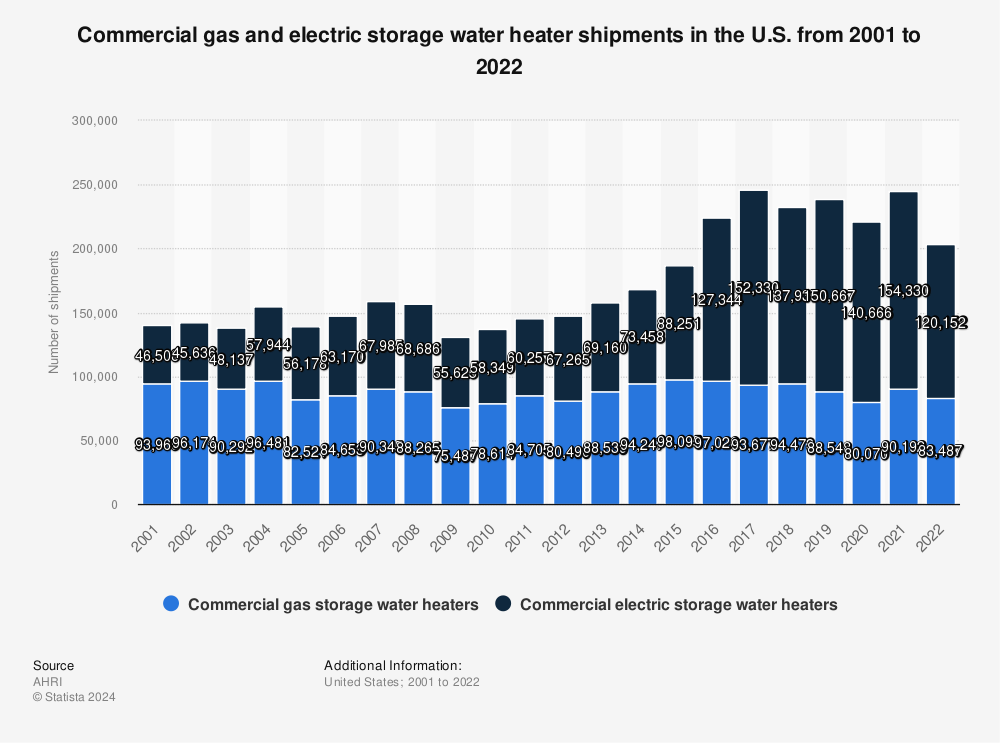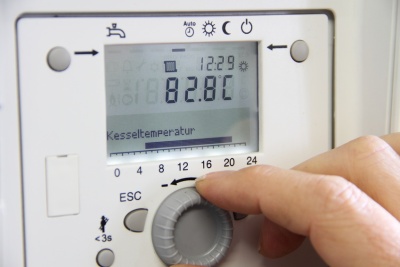Water heaters allow us to heat the water that we use around the home. This includes the water we use for baths or washing our hands, as well as the water that heats our radiators and even swimming pools.
Water heaters are crucial for our hygiene and comfort around the home and they’re also crucial for businesses and industry – especially the hospitality industry.
This is a market that is unlikely to go anywhere any time soon. But is the industry growing? How much is it worth? And what does it involve? Let’s find out. The water heater market is one that is unlikely to disappear any time soon. We all need water and we all need that water to be hot.
This might be why gas water heater markets are estimated to be worth over $9 billion by 2024 according to many predictions. This is a big jump from the market value in 2014, which was estimated at $37.87 BN USB. The industry has reportedly enjoyed increased product visibility, which may be a result of the large amount of attention that the environment and eco-friendly living has been enjoying. In other words, as we become more aware of the impact water heating has on the environment, we have become less satisfied with whatever water heater was installed in our homes when we first moved in.
The global water heater devices market is segmented by product type (electric, gas, solar, propane) and by location. Storage types also vary, with the tankless heater being expected to expand at the highest CAGR (6.0%).
The market is also segmented geographically into North America, Latin America, Europe, Asia-Pacific, Middle East and Africa. The Water Heater devices market in Asia Pacidifc was valued at $11.56BN in 2014 and should be $17.8 BN by 2021.
How to be More Efficient With Water Heating in Your Own Home
The big problem with water heating is that it requires a lot of energy, which means it can place a strain on the environment. If you want to be as coconscious as possible when heating your own water, then consider that there are a number of ways to be more energy efficient while still enjoying warm baths and hot drinks!
When we look at ways to be more efficient around the home and to save money, we tend to often focus on methods that deal with electronic devices and installations. This might mean trying not to leave lights on, or it may mean turning down the heating or even the brightness on the TV. While these methods work though, they are of course not the only ways you can save money and be more eco-friendly around the home.
Just as important is to consider your water use. Whether or not you pay for the amount of water you use, this is still going to affect the environment and you will still likely pay for the money to heat that water. Thus by being more conscious of the way you run water, you can make life around the home more affordable and you can benefit the environment at the same time. Read on for some ways you can do this effectively…
Share Showers and Baths
One option to save money on your water bill and energy bill is to shower together. This is a great excuse for couples to be more intimate and can benefit your relationship too, so there's really no downside. As for others, sharing bath water doesn't have to be the same as sharing a bath: if you have kids for instance then you can let them use the same bath water by taking it in turns. You may just have to top up a little hot water after the first child has been in.
Alternatively, why wash at your home at all? If you pay for an expensive gym membership then maybe it's time you started making the most of it by showering there too. Even if you don't use the gym that day, there's nothing to stop you from swiping in then going to have a wash every day if you so wish! They tend to be very nice showers too…

Find more statistics at Statista
Wash Up Correctly
If you've ever been corrected on how you wash up dishes then you'll know that your strategy here can affect the outcome and make your crockery more or less dirty at the end. However what you may not have realised is that the way you wash up can also impact on the amount of water you use. Want to avoid having to drain the water and re-fill the sink halfway through? Then make sure you wash up the cleaner and smaller items first so you don't dirty the water. That means glasses and mugs first, pans of pasta sauce last. This can make a huge difference, especially considering the dish water will likely be very hot.
The Future of Water Heating: Geothermal?
Several newer technologies look set to shake up the market. One such example of a green technology is geothermal heating and cooling and this is a method used to heat and cool many properties as well as things like swimming pools and hot tubs. So how does this geothermal heating and cooling work? And does it represent a viable way for you to end your reliance on non-renewable fossil fuels? Here we will examine precisely what geothermal heating and cooling is and what the strengths and weaknesses are.
Essentially geothermal heating and cooling gets its thermal energy from deep beneath the ground. This works because when you go deep enough underground you get to a point where the earth is really very hot. This is because it has been heated up by the sun over thousands of years, and unlike the surface it does not have the benefit of wind and rain to cool it down – it is surrounded entirely by more insulating rock and dirt.
